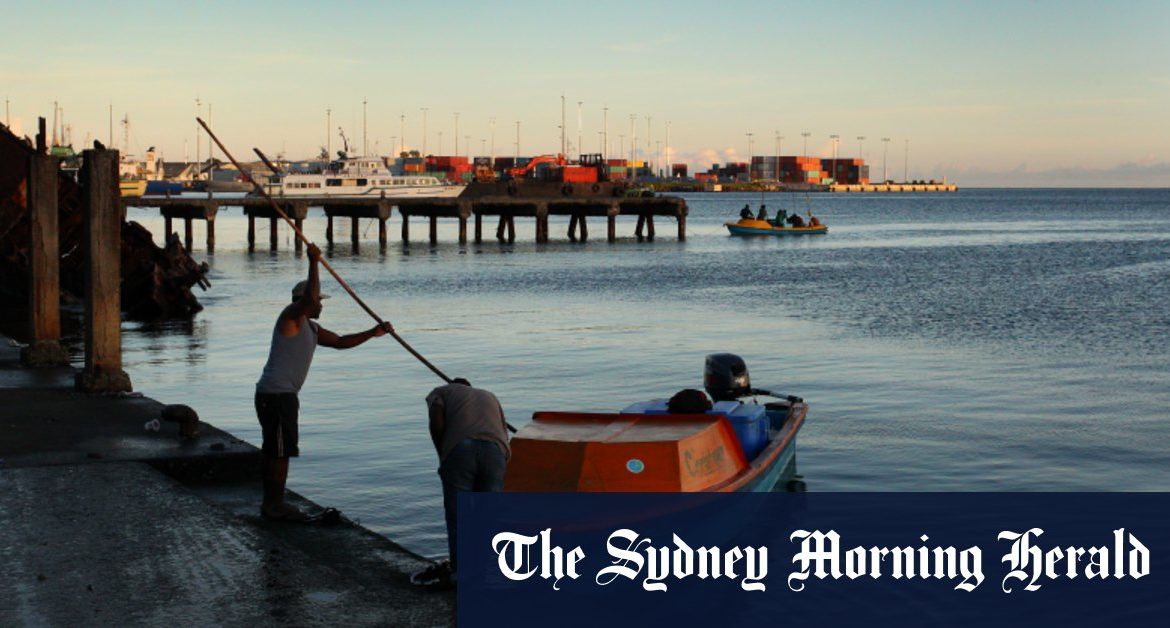Emanuele Capobianco, director of health at the IFRC, said he believed the world was still “very far from ensuring there is an equitable distribution of vaccines”, warning of a rise in “vaccine nationalism”.
He said the virus could come back to developed nations in the form of new variants unless developing nations were also vaccinated at the same time, warning “nobody is safe until everybody is safe”.
“That’s a possibility and a scary scenario,” Dr Capobianco told The Sydney Morning Herald and The Age.
“We need to underline the fact that you cannot easily seal countries off — the virus will circulate, the virus will come back and hit even those countries that may have vaccinated a lot. So there is an interest also for the high-income countries to ensure low-income countries and middle-income countries are vaccinated.”
While war-torn countries were a particular concern, Dr Capobianco said there should also be a focus on ensuring vaccines were delivered for the homeless, immigrants and refugees.
Australia has committed $80 million to the COVAX facility to vaccinate the highest risk populations throughout the region, including Pacific island states, while it is contributing an additional $123.2 million to ensure it has the buying power to bring prices down to all participating countries.
Loading
Dr Capobianco said there would be a significant gap even if the COVAX facility was fully funded and delivered.
“There has been some progress made, but the road ahead remains very bumpy and probably very long,” Mr Capobianco told The Sydney Morning Herald and The Age.
“We believe that COVAX is the alternative to vaccine nationalism – it’s a multilateral initiative based on the principle of global solidarity.”
A report by the Economist Intelligence Unit this week found many rich countries will manage to inoculate their most vulnerable citizens by mid-March, while most middle-income countries will not be able to do the same until 2022. Poorer countries may not be able to achieve widespread vaccination until 2023 or even longer, according to the study.
The World Health Organisation has described the widening gap as an unfolding “catastrophic moral failure” and concluded that advanced economies face losses of up to $2.4 trillion – or 3.5 per cent of their annual gross domestic product before the pandemic – unless they assist developing countries to speed up their vaccination programs.
Dr Capobianco said AstraZeneca’s announcement this week that delivery of its vaccine would be reduced by millions of doses would have “huge consequences” and it was a reminder the world needed to keep in place existing measures – such as social distancing, masks and good hygiene – for the foreseeable future.
“We are being very consistent in saying the best line of defence is individual behaviour,” he said.
“The vaccines are coming and are in a way the light at the end of the tunnel, but we are walking through that tunnel and we shouldn’t be blinded by that light.”
A spokeswoman for the Australian Department of Foreign Affairs and Trade said it was working in close partnership with neighbours to ensure the region had “equitable access to safe, effective and affordable COVID-19 vaccines”.
“Multilateral and non-government organisations have an important role to play in supporting the vaccines roll-out,” the DFAT spokeswoman said.
“To ensure our support is partnering closely with communities at the grassroots level we have also funded the IFRC in the Asia Pacific to deliver broader COVID-19 health programs, including the prepositioning of vital supplies and delivery of training on COVID-safe practices.“
In its pre-budget submission to the federal government, the Australian Council for International Development said delays to mass vaccinations globally would create a “greater opportunity for new variants to develop, which are more virulent, more deadly and which render existing vaccines less effective or ineffective”.
The ACFID called on the Australian government to increase its contribution to global collaboration to accelerate the development of coronavirus vaccines by at least $500 million in the 2021-22 Budget.
Loading
“Inequitable access to COVID-19 vaccines threatens to prolong the pandemic, eroding stability, prosperity, and resilience in in both developing and developed nations,” the ACFID said.
“In the absence of a fair and equitable global vaccine rollout, Australia and its Indo-Pacific neighbours will remain vulnerable to recurring outbreaks. This will undermine regional stability, economic confidence, and social cohesion.
“It will also provide an opening for those states who may wish to exploit the pandemic to undermine the rules-based order.”
Anthony is foreign affairs and national security correspondent for The Sydney Morning Herald and The Age.
Most Viewed in Politics
Loading







